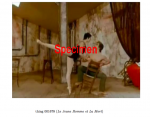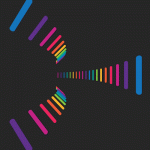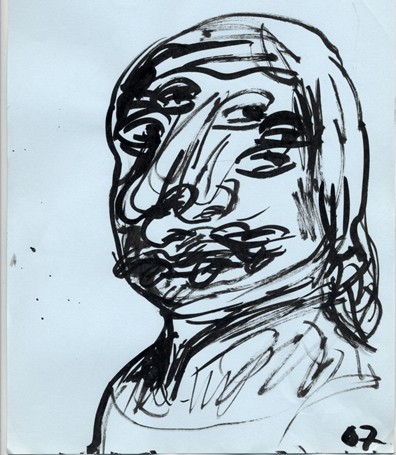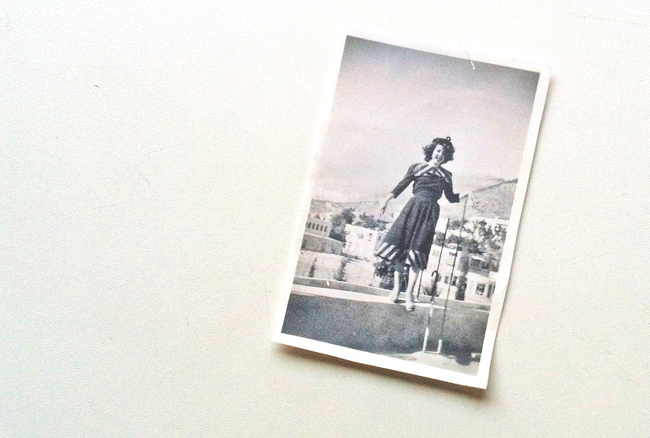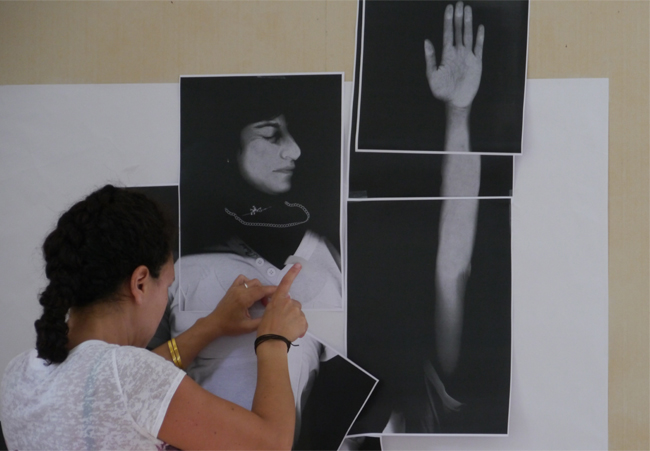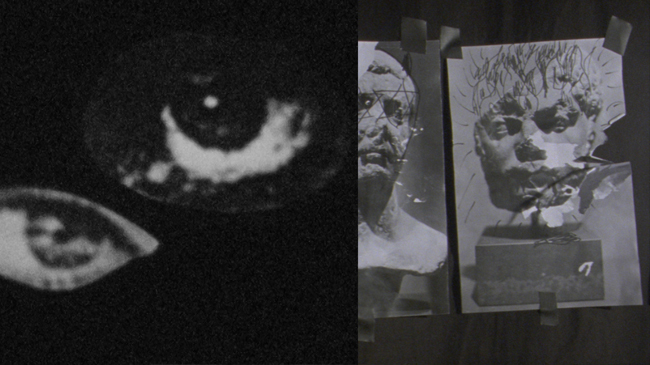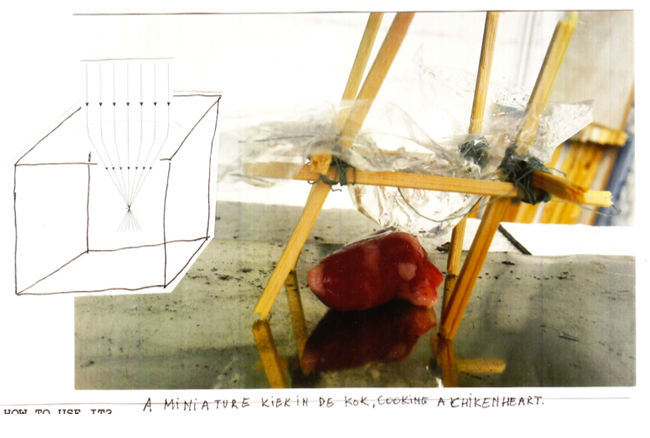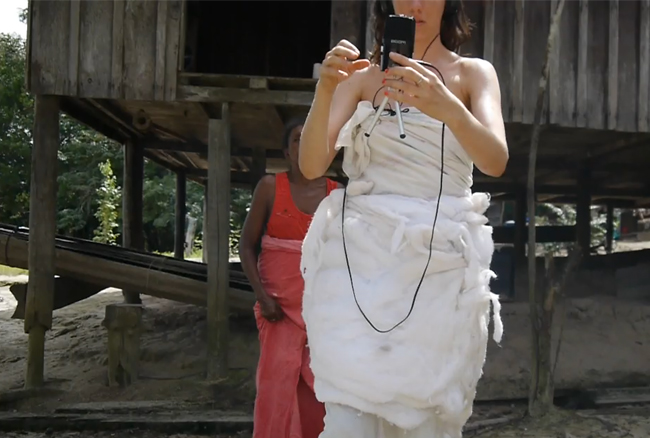Curated by Sofia Caesar and Lilia Mestre, the public program “The Document Transformed” invites four practitioners that offer very distinct questions, methods, and proposals to problems related to documentation. Join Femke Snelting, Olga de Soto, Vincent Meessen, and Agency (Kobe Matthys), and others, for three days of presentations, screenings, performances and conversations. How does the document affect practices, bodies, histories, and experiences? The event brings together practices that not only give sight to the power relations engendered by apparatuses of documentation, but also move towards the transformation of the systems in which we produce history, law, art, and the body. Held in the context of The Problem of the Score, block curated by Lilia Mestre in the a.pass post-master research program and supported by a.pass.
This seminar is organized in collaboration with La Bellone - Brussels
To inscribe to the master-classes please send an email to production@apass.be
JUNE 22-23-24 @ LA BELLONE
Rue de Flandre 46
Brussels
Detailed program:
Thursday June 22nd
10:00 > 13:00 Masterclass Agency (Kobe Matthys)
What if ephemeral things become included within art practices? Intellectual property seems to be mostly reserved for “fixated” things. Although the European copyright law doesn't exclude variability, during jurisprudences judges consider movements that are “recordable” in some way or another. Agency calls forth different controversies from recorded movements in dance and performance and sport. By paying attention to the consequences of the apparatus of intellectual property right for the protocols inherent to practices, the fragility of the mode of existence of singular art practices is made explicit.
14:00 >17:00 Masterclass Possible Bodies (Femke Snelting and Adva Zakai)
This edition will be dedicated to a collaborative dissection of the BioVision Hierarchy file format. BioVision Hierarchy (.bvh) is an ASCII file format used to import data from various motion capture systems into 3D-animation software. It was developed in the mid-nineties and remains one of the most commonly used file-formats for transposing movement captured in physical space, to a computational environment. Around this relatively legible format, a rich ecology of software tools developed. The file-format functions as a boundary object between practices and bodies, as it is used by animators, game developers, interface researchers, medical professionals, dance-historians, sports-analysts and engineers.
Together we will analyse the .bvh specifications and samples of the file format in order to understand what imaginaries of the body are encoded into it, what a bipedal skeleton hierarchy consists of, and how rotational data for rigid bodies might constitute a movement in itself.
The reading of the .bvh file format is developed with Adva Zakai in the context of Possible Bodies, a collaborative research initiated by Jara Rocha and Femke Snelting on the very concrete and at the same time complex and fictional entities that “bodies” are, and the matter-cultural conditions of possibility that render them present.
Friday June 23rd
10:00 >13:00 Exhibition visit (Bozar) and discussion with Vincent Meessen
Starts at Bozar Main entrance
In this afternoon, artist Vincent Meessen will take us through his Bozar show, that comes from his recent practice that involves research, historicization, and speculation about congolese works of art that have been commissioned and (re-)contextualized in the early 30’s. Starting from there, we can raise some issues about what a work of art is expected to be and how it can shift meaning with context and neighbouring artefacts.
More about the show Patterns for (Re)cognition by Tshela Tendu & Vincent Meessen, Opening 16th June at BOZAR: http://www.bozar.be/nl/activities/124891-tshela-tendu-vincent-meessen
14:00 >17:00 Masterclass Olga de Soto
Olga de Soto will share her research project that has Kurt Jooss’ The Green Table (1932) as a starting point. She will display the process, methods, research protocols and strategies that she has developed over time, and through which she addresses the question of reconstruction, re-enactment and revival from the perspective of the trace, both material and immaterial, in order to analyse the several charges the work contain (social, political, dramatic, emotional...).
She will share with us how she approached Jooss' work through the archive, the trace and the document, proposing to circumvent the traditional modalities of transmission in dance, in order to probe the archive’s "capabilities" to say the work, as well to examine the archive's "becoming-work".
We will observe how the project and its process unfolded simultaneously into two levels: on a documentary research level and on a creation level. With the help of several documents, we will observe how the documentary research was developed, dedicated in part to researching and documenting the perception and transmission of The Green Table, seeking out iconographic material (through the gathering of numerous documents of different kinds), analysing the choreographic characteristics of the work and looking for witnesses – dancers and audience members from different origins and generations, in order to study the perception of the work through the prism of the viewer’s gaze (using the interview as a tool to collect memories, focusing on the importance of the testimony and oral sources).
Saturday June 24th 12:00 > 18:00
In this afternoon of presentations, screenings, and performances, the four invited practitioners will take us to dive deeper into different case studies.
12:30 Sofia Caesar: Introduction talk
13:00 Femke Snelting
Femke Snelting will present a collaborative dissection of the BioVision Hierarchy file format. BioVision Hierarchy (.bvh) is an ASCII file format used to import data from various motion capture systems into 3D-animation software. Together they will analyse the .bvh specifications and samples of the file format in order to understand what imaginaries of the body are encoded into it, what a bipedal skeleton hierarchy consists of, and how rotational data for rigid bodies might constitute a movement in itself.
14:00 Olga de Soto
Olga de Soto will share some excerpts of Débords, work presented at Les Halles in 2012, as well as some excerpts of the installation she is currently working on, and that was partially presented this Spring at Museum für Neue Kunst, in Freiburg. The presentation will be punctuated with a discussion on the work.
PAUSE
15:30 Vincent Meessen
Vincent Meessen will screen “One. Two. Three.”, piece presented in Wiels in 2016, followed by a talk about his strategies of re-composition and counter-narratives.
16:30 Agency (Kobe Matthys)
“What if ephemeral things become included within art practices?” Thing 001678 (Le Jeune Homme et la Mort) concerns a conflict between on the one hand Roger Eudes, Théâtre Champs-Elysées, and on the other hand Jean Guttmann (Babilée) and Jean Cocteau about the performance Le Jeune Homme et la Mort. On June 8, 1960, the court case Eudes c. Gutmann, Cocteau et autres took place at the Cour d’appel de Paris. Judge Rousselet had to decide who owned the rights over the movements of the performance, Eudes who hired Jean Gutmann to “translate” Jean Cocteau his drama into ballet movements or Cocteau who wrote the script of Le Jeune Homme et la Mort.
17:30 Book launch with Juan Dominguez and Victoria Perez Rojo
The book Dirty Room is the fourth and last phase of Juan Dominguez’s research, developed during 2015-16 as a.pass associate researcher. Dirty Room is a collection of outlines, notes, ideas, reflections, photographic materials, maps, manifestos, fragments from diaries, transcriptions of conversations, interviews, email exchanges, memoirs, memories and scripts, among other documents from the working and research process that led to Clean Room. Clean Room was a project based on the concept of seriality with a pilot and 3 more seasons of 6 episodes each that took place from 2010 to 2016.
Dirty Room offers the readers an immersion in the process of the project Clean Room. It is a book in which there are no critical essays, or texts speaking only from the external position of the spectator. All of the contributions are part of the ongoing research and working process of Clean Room, either continually accompanying it over long periods or as one-off contributions at a specific moments. This decision highlights the great potential of the process in its fragmentary, undefined and open nature not only for the transmission of knowledge and ideas, but above all for stimulating imaginative processes to connect with the concerns that set the series in motion.
Dirty Room
Edited by: Juan Domínguez and Victoria Pérez Royo
Editorial: Continta me tienes
Executive Production: manyone
Madrid, May 2017
Translations by Ana Buitrago, Simon Malone and Catherine Phelps
This is a publication by the a.pass research centre.
About the participants
Vincent Meessen
"Transform documents into experiences and vice versa". This phrase by Aby Warburg could definitely be used to introduce Vincent Meessen's speculative realism, or as he calls it: 'documents d'expérience'. His archival investigations always lead to loose associations and appropriative gestures that are rewritten into critical narratives.
In his latest modular installations he combines films with printed matter and sculptures. Meessen produces narratives that question our ability to deal with the colonial ghosts of modernity. In his recent Vita Nova, he makes use of the filmic essay to re-read Roland Barthes in various postcolonial African situations, applying Barthes's deconstruction tools to some of his famous texts. Vincent Meessen likes to use procedures of collaboration that undermine the authority of the author and emphasize the intelligence of collectives and of conceptual characters. He is a founding member of the artist collective Potential Estate and of the platform for artistic research and production Jubilee (jubilee-art.org).
Recent shows include KIOSK (Ghent), ARS 11, Kiasma Museum (Helsinki), Stedelijk Museum Bureau (Amsterdam) and Contour Biennial for Moving Images (Mechelen). He worked together with the collective Potential Estate for the Brussels Biennial and M HKA (Antwerp). His filmworks were screened at Jeu de Paume, at Cinémathèque française (Paris), at Museo Reina Sofia (Madrid), at the Swiss Institute (NY) and at international festivals such as IDFA (Amsterdam), IFFR (Rotterdam), Cinéma du Réel (Paris) and Transmediale (Berlin). His films are distributed by Argos center for art & media (Brussels) (see also section on Art Organisations). Meessen has curated several film programs and exhibitions for various institutions including Extra City (Antwerp), Argos (Brussels), C.E.A.C (Xiamen, CH), E.R.B.A (Valence, F).
Agency
Agency is a Brussels-based initiative founded in 1992, which constitutes a growing list of 'things' that resist the radical split between the classifications of "nature" and "culture" and consequently between expressions and ideas, creations and facts, subjects and objects, humans and non-humans, originality and common, mind and body, etc.
Femke Snelting (Possible Bodies)
Artist and designer, developing projects at the intersection of design, feminism and free software. She is a core member of Constant, the Brussels-based association for arts and media, and co-initiated the design/research team Open Source Publishing (OSP). With delegates Jara Rocha, Seda Guerses and Miriyam Aouragh she takes part in the Darmstadt Delegation, assigned to explore techno-political and socio-emotional relationships between activist practice and tools. She formed De Geuzen (a foundation for multi-visual research) with Renée Turner and Riek Sijbring and recently co-ordinated the Libre Graphics Research Unit, a European partnership investigating inter-relations between free software tools and artistic practice. Femke teaches at the Piet Zwart Institute (Master Media Design and Communication).
Possible Bodies is a collaborative research on the very concrete and at the same time complex and fictional entities that “bodies” are, asking what matter-cultural conditions of possibility render them present. This becomes especially urgent in contact with the technologies, infrastructures and techniques of 3D tracking, modelling and scanning. Intersecting issues of race, gender, class, age and ability resurface through these performative as well as representational practices. The research is concerned with genealogies of how bodies and technologies have been mutually constituted. It interrogates corpo-realities and their orientation through parametric interfaces and looks at anatomies that are computationally constrained by the requirements of mesh-modelling. It invites the generation of concepts and experimental renderings, wild combinations and digital and non-digital prototypes for different embodiments. Collectors: Jara Rocha + Femke Snelting.
Her collaborator Adva Zakai is a choreographer, performer and curator who explores how body and language are perceived through each other.
Olga de Soto
Olga de Soto Olga de Soto is choreographer and dance researcher, born in Valencia, she lives in Brussels. She graduates from CNDC / Centre National de Danse Contemporaine d’Angers, after having studied classical ballet, contemporary dance and music theory in Valencia and in Madrid. Her creation work begins in 1992, and includes the creation of numerous works of different formats. Since the end of the ’90, her work focuses on the study of memory, and it questions the impact of live art, its usefulness its lasting quality, deploying itself along two axes. The first centres on the study of the body's memory through the creation of works, aiming at a pluralistic approach to dance and the body, in works creations such as anarborescences (Théâtre de la Cité internationale, Paris, 1999), Éclats mats (Centre Pompidou, Paris, 2001), INCORPORER ce qui reste ici au dans mon cœur (Centre Pompidou, Paris, 2004-2009). The second axis explores works from the history of dance as part of an approach governed by the study of perceptual memory, that of spectators and dancers. The resulting projects emphasize the importance of the processes and pay particular attention to documents, to the process of documentation, to testimony, to archives and oral sources, narrative and storytelling, particularly in works such as histoire(s) (Kunstenfestivaldesarts, Brussels, 2004), An Introduction (Tanz Im August, Berlin, 2010) or Débords (Festival d’Automne, Paris, 2012). These projects are interested in the experience of the viewer and in the anthropology of the spectacle, while developing through an approach that studies the aesthetic experience based on the oral history of works from the past. Her last projects genuinely mix the languages of choreography with those of documentary, performance, visual arts and installation, playing with the porousness of these disciplines. The work of the choreographer also reveals the strong links between art history, social and political history, and personal paths. Olga de Soto’s work has been shown in some twenty countries, an she is regularly invited to teach and to lead workshops and classes in various universities, as well as to collaborate in conferences where she shares her research methodology and her documentation work. She was awarded the SACD Prize 2013 in the category of Performing Arts for both her trajectory and her research work on Dance History, and specially for her research and creation work on The Green Table.
